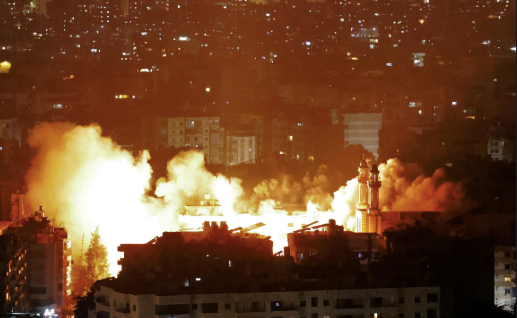
Tel Aviv/Tehran, June 14, 2025 — Tension in the Middle East escalated dramatically on Saturday as Israel announced plans to launch additional strikes on targets in Tehran. This was following a series of powerful air assaults that crippledseveral of Iran’s air defence installations. The Israeli military claims the operation, involving 200 fighter jets, was one of the largest aerial campaigns in decades and targeted more than 100 strategic Syrian sites.
The Israeli Defence Forces confirmed that the strikes focused on Iranian missile batteries, radar systems, and nuclear research facilities, including senior commanders from Iran’s Revolutionary Guard and several nuclear scientists. Over 300 others were injured, many critically, according to Iranian media outlets.
After the initial wave of deadly attacks, Prime Minister Benjamin Netanyahu declared that operations agaisnt Iran would continue “as long as necessary” to dismantle its “terror infrastructure and nuclear capabilities.’ Israeli officials claimed that the strikes were preemtive and necesarry to neutralize what they called ‘imminent threats” from Iran’s growing missile and drone arsenal.
Ira launched a series of missile and drone attacks striking at Israeli cities, including Tel Aviv and Haifa. Israel’s Iron Dome and allied air defence systems intercepted a large number of the projectiles, but some managed to strike civilian areas, resulting in at least three deaths and dozens of injuries. Air raid sirens achoed across central Israel late into the night as residents took shelter.
The Iranian Foreign Ministry denounced the Israeli attacks as a “declaration of war,” vowing that additional attacks would be answered with wider retaliation. Iran also warned that it would target American, British, and French military bases in the region if Western powers acted. “The time of covert wars is over,” Iranian Defence Minister Mohammad Reza Ashtiani declared on television. “We will respond directly and decisively.”
The growing conflict has caused broad disruptions in the region. Multiple countries, including Syria, Jordan, and Lebanon, have closed sections of their airspace, and top airlines like Emirates, Lufthansa, and Air India canceled or diverted flights. Oil prices have increased almost 7% on account of concerns over interruptions to oil exports from the Gulf, and stock markets around the world have reacted with price swings.
In New York, the United Nations Security Council convened an emergency session but could not come to a joint resolution. Diplomatic sources point to increasing alarm among world leaders that the present exchange may escalate into a wider regional war involving the United States, Hezbollah, and other regional powers.
While the situation is still unstable, experts caution that recent events represent a risky new phase in the protracted shadow war between Israel and Iran. With both sides directly firing at each other and issuing ultimatums, the danger of a prolonged military conflict, not just episodic clashes, now seems more probable than ever before. The world holds its breath as the region hovers on the threshold of a big war.
Keep Reading Questiqa.com for more news.




